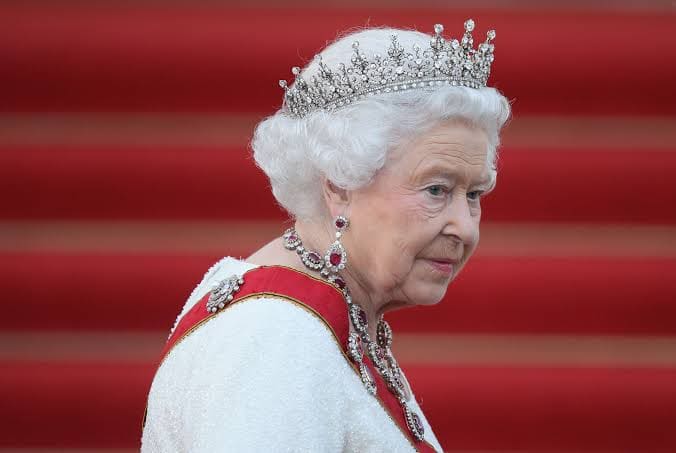
There are substantial fallacies about India’s history before the conquest of the British that serve as justification for their colonial expansion. The suffering that imperial control inflicted on this country goes beyond colonial plundering and repressive political rule to include cultural and gender-based disparities that still plague our society. The present generation must realize that imperialism is to blame for many of the world’s injustices and that the west has an ethical imperative to alleviate them.
Following Jawaharlal Nehru’s well-known address on India’s “tryst with destiny” at midnight on August 14, 1947, British rule came to an end almost 200 years later. The British had the ability to alter India’s entire course for over two hundred years, which is a very long amount of time. From the Plassey conflict till the country’s independence, colonialism ravaged the country, dividing, subjugating, looting, and exploiting both people and the environment. Even while India had a wide range of accomplishments in philosophy, arithmetic, literature, crafts, construction, theater, health, linguistics, astronomy, and established trade links, it had in numerous aspects slipped much behind the progress being attained in Europe in the mid-18th century itself. It is important to analyze the exact cause and impact of this stagnation since it entails finding long-term approaches to several institutional and structural issues. This stagnation, however, does not justify the imperial encroachment that ripped off India’s historical legacy under the guise of a civilizing mission or modernization.
One habit we inherited from the civilizing mission is the wild abandon of English. It’s possible that we developed such a strong desire for English that it became essential to Indian existence, both materially and emotionally. Demanding English as a requirement for expertise has produced a workforce that is obsessed with the right accent. An English-speaking populace that is immersed in regional and economic diversity finds this denigration of regional intonations to be a major headache.
In a country where the constitution is the supreme law, incidents of police brutality and humongous human rights violations are a common irony inherited from British rule. The level of colonial police brutality used to suppress any kind of rebellion against the colonial power is a bitter memory. The support for predatory capitalism and unending corruption rises from the lack of accountability from the police system. The laws and institutions of the 1860s gave legal standing to these still persistent human rights violations.
Despite working with Indian liberals like Raja Ram Mohan Roy to eradicate societal ills that only affected women, such as “sati,” the British’s view of women was, at best, traditional and patriarchal. Victorian women were expected to stay at home, be homely and be excluded from public society. The new laws created by the British had this perspective behind them, imposing moral codes on Indian women’s lives. The overt and covert support for marital rape was enforced through IPC sections like 375 and 376. Consequently, rules against rape never applied to married women. The laws granted the husband total protection in regard to his wife, founded only on their relationship. Section 497, which has since been repealed, insulated adultery as a sin committed by women, lending support to a society that had already labelled a woman’s character based on so-called “moral righteousness.” The struggle for decriminalising homosexuality also stems from these British laws that had such an impact on society that social acceptance for women and the LGBTQ+ population is rare. The lack of women’s participation in the economic sector is a prime reason for Indian financial woes with a dependent female population and illiterate females. These Victorian era moral standards still cast a shadow over our development and progress.
Queen Elizabeth presided during a time of significant socio-political upheaval and technical advancement, and she witnessed some of history’s most critical human rights battles. This covered a time range from colonial domination to the dynamism of liberal democracies while they were both administered by the monarch. She pledged to carry out her obligations in favor of the British imperial family, which is equated with British colonialism and its concomitant barbarities, in her initial monarchical address. The British crown has always prospered from the fortunes and plunder taken from their colonial possessions. The post-colonial identity of India stands with the masses who are still bridled with economic woes, developmental stagnation, illiteracy, inequality, human rights violations, and the oriental identity. “Just as none of us is outside or beyond geography, none of us is completely free from the struggle over geography. That struggle is complex and interesting because it is not only about soldiers and cannons but also about ideas; about forms; about images and imaginings.” This quote by Edward Said clearly points to the unending impact of colonialism, casting a shadow and crippling the identity of the state.
There are increasing findings of imperial misdeeds and strident demands for remedies that are finally beginning to manifest. This paradoxical but interlaced image of the Queen and the monarchy will generate a major dialogue in the years ahead. Indian internal problems are evidently deeply rooted in the British colonial legacy’s civilizing mission. Addressing this may raise a plethora of questions about our own history and culture, leading to a broader understanding of the imperial legacy behind the liberal west.



